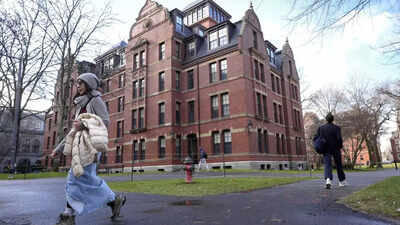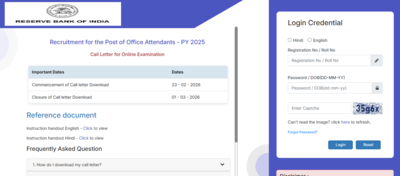Trump targets Harvard again, threatens to strip accreditation over civil rights allegations

The Trump administration has turned its gaze once more toward Harvard University, not with dialogue or policy debate, but with subpoenas, threats, and the specter of accreditation loss. What began as a political disagreement over curriculum and campus governance has now escalated into a full-blown assault on institutional autonomy. The latest move, declaring that Harvard may no longer meet federal accreditation standards, marks a chilling milestone in a war where ideology, not law, appears to dictate the rules.At the heart of the controversy is the allegation that Harvard violated Title VI of the Civil Rights Act by failing to protect Jewish and Israeli students. While all claims of discrimination must be taken seriously, it is impossible to ignore the broader pattern: funding cuts, blocked admissions of international students, and a growing effort to subordinate higher education institutions to political whims.What is happening at Harvard is not merely a legal battle. It is a trial of ideas, fought in the shadows of subpoenas and administrative maneuvers, with profound consequences for academic freedom across the United States.
Accreditation becomes a weapon
Until recently, accreditation was viewed as a system of checks and balances that safeguarded academic integrity. Today, it is being transformed into a tool of executive pressure. The Department of Education and the Department of Health and Human Services have formally urged Harvard’s accreditor, the New England Commission of Higher Education, to investigate the university for non-compliance. This, despite the fact that Harvard is not scheduled for comprehensive review until 2027.Such pressure sets a dangerous precedent. Although the accreditor is technically independent and cannot be ordered to revoke accreditation, the signal from Washington is unmistakable. This is no longer a process to ensure academic quality. It is a warning shot to any institution that dares to defy the administration’s line.
Targeting international students: A calculated blow
Perhaps the most consequential aspect of the administration’s campaign is its threat to revoke Harvard’s ability to admit international students. The Department of Homeland Security has stated that it will issue subpoenas related to the “criminality and misconduct” of student visa holders on campus. No specifics have been offered, but the damage is already done.Harvard’s international students make up nearly 27 percent of its population. The financial and intellectual contribution they bring is irreplaceable. This threat, if executed, would not only cripple Harvard’s global stature, but would also signal to the world that the United States no longer welcomes international scholars unless they conform to the prevailing political order.This is not a matter of national security. It is ideological warfare disguised as regulatory oversight.
First amendment at risk or political smoke?
Harvard has argued that the administration’s actions are retaliatory, a response to the university’s refusal to yield control over its curriculum and admissions processes. It claims this is a direct infringement of its First Amendment rights. Whether one believes that this is purely about free speech or not, the pattern remains unmistakable.This is about power. The power to control what is taught, who gets to teach it, and who is allowed to learn. It is an attack not just on Harvard, but on the autonomy of any institution that does not toe the government line.If the government can freeze $2.5 billion in grants, challenge accreditation status, and intimidate a university into compliance through visa threats, then the separation between state and campus is all but gone.
A warning to the academic world
Harvard may be the target today, but the implications are far wider. If one of the wealthiest and most globally recognized institutions in the world can be politically cornered and publicly humiliated, then what protections exist for smaller, less resourced universities? What happens when public universities with fewer legal defenses face similar scrutiny?This is not governance. This is a performance of power meant to stoke fear and submission.Universities, long heralded as bastions of independent thought and critical inquiry, are being slowly transformed into ideological battlegrounds. Those that resist may find their funding cut, their students harassed, and their legitimacy questioned.
The Idea of Harvard and the American Ideal
The name Harvard conjures images of scholarly excellence, historical gravitas, and intellectual independence. But now it stands at the center of a storm that threatens the very principles it was built upon. The question is no longer whether Harvard can survive this administration’s campaign. The real question is whether American higher education can survive the precedent being set.This is not just about a university. It is about whether a nation still believes in the importance of dissenting ideas, in the independence of its institutions, and in the sacred separation between government and education.If not, then what is happening at Harvard is not the exception. It is the beginning.





